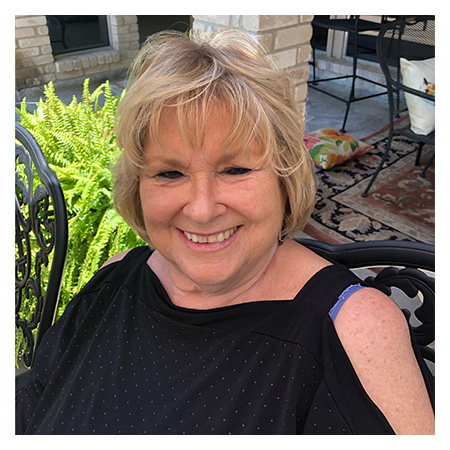Endoscopic Zenker Diverticulum Repair Using a New Technique
 When Mona King tried to swallow food, it lodged in her throat. “I would choke and have to drink water, and sometimes the food would come back up,” she says. “It was also causing me to have bad breath.”
When Mona King tried to swallow food, it lodged in her throat. “I would choke and have to drink water, and sometimes the food would come back up,” she says. “It was also causing me to have bad breath.”
King was referred to Andrew Tritter, MD, an assistant professor in the Department of Otorhinolaryngology at McGovern Medical School at UTHealth Houston. Dr. Tritter ordered a modified barium swallow study for an accurate image of her throat, and diagnosed her with a Zenker diverticulum, a pouch that forms where the throat connects to the esophagus.
“Cases of Zenker are usually a chronic condition,” he says. “The cricopharyngeus muscle at the top of the esophagus acts as a sphincter, remaining closed most of the time. Over time and with age, the muscle can tighten due to acid reflux – the most common cause – or inflammatory muscle conditions. In some people, the tightening is a behavioral response caused by carrying tension in the throat. The condition tends to occur in older people, because an individual has to swallow against an overly tight sphincter for a long time to create a pouch.”
“I could live with it or have surgery,” says King, who is 80. “I decided to go ahead with surgery.
“The old-school way of treating a Zenker diverticulum is an open approach through the neck that removes the pouch so that it doesn’t trap food,” Dr. Tritter says. “We can also use endoscopic surgery through the mouth, taking down the wall between the pouch and esophagus to let trapped food drain into the esophagus. Instead, we used a newer technique to remove the pouch completely through the mouth, while also removing some of the cricopharyngeus muscle that caused the pouch in the first place. We took down the muscle with a laser and then pulled the pouch into a position where we could trim it away. We stitched the remaining mucosa back together endoscopically. Because we cut the muscle, it’s no longer too tight, making the risk of recurrence very low.”
King describes the surgery as “100% successful with no unexpected problems. I was in the hospital two days and had to be on a liquid diet, which wasn’t bad for me at all,” she says. “I remember it as an excellent recovery. I didn’t need pain medication and never had to call Dr. Tritter, although his office called to check on me.
“I’m hard of hearing, and he never forgot that,” King adds. “He looked me in the eye and talked loud. He was very personable and told me exactly what to expect. I’m very thankful for a good surgery and recovery at the age of 79.”